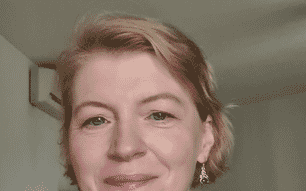The fourth BBSRC Veterinary Vaccinology Network conference was held at the Stirling Court Hotel, on the University of Stirling campus on 18-19 January and was attended by an impressively international selection of around 100 delegates.
The main theme of this year’s conference was fish vaccinology and immunology, and the first day of the conference began with a session on fish vaccination strategies chaired by Prof Alexandra Adams that included presentations by some of the most renowned scientists in the field.
Prof Oystein Evensen from the Norwegian University of Life Sciences (NMBU) gave an overview on fish vaccine strategies; Prof Chris Secombes from the University of Aberdeen then provided an update on fish cytokines; Dr Maria Forlenza from Wageningen University in the Netherlands presented a case study on the application of zebrafish as an experimental animal model using trypanosome infections in transparent fish; and Dr Carolina Tafalla from INIA Madrid highlighted the progression made in fish vaccine adjuvant technology.

The early career researcher session, chaired by myself and Dr Rowena Hoare (University of Stirling), included nine short talks on a range of vaccine developments by researchers from PhD to post-doctoral level, including four talks on fish vaccinology.
Stirling PhD student Khalid Shahin presented ‘Efficacy of a whole cell-inactivated vaccine against heterologous challenge with geographically distinct Francisella noantunensis subsp. orientalis isolates’; Dr José Gustavo Ramirez-Paredes, also from Stirling, presented ‘Efficacy of a commercial vaccine against atypical furunculosis in ballan wrasse (Labrus bergylta)’; Dr Kimberly Veenstra from the University of Aberdeen presented ‘Adipose immune responses to oil-adjuvanted vaccines in rainbow trout provides insights on side effects’; while Marc Faber, also from Aberdeen, won first prize for his talk on ‘Proliferative kidney disease in rainbow trout: Field testing of novel DNA-vaccine candidates’.
The cross-disciplinary nature of this network conference provided a unique forum for research collaboration and scientist networking on different aspects of immunology and vaccinology for fish and higher vertebrates and it was also encouraging to attract so many delegates involved in aquaculture research.
The VVN will soon be evolving into the International Veterinary Vaccinology Network (IVVN) and the new organisation will be holding its first conference on 26-27 March, in Nairobi. The aim of the new organisation is to encourage researchers based in the UK to collaborate with researchers in low to middle income countries.
Note on the event
Sean helped organise the VVN conference with colleagues from the Institute, Dr Rowena Hoare and Prof Alexandra Adams, along with Madeleine Clark, Bryan Charleston and Anne Syrett (VVN & Pirbright Institute).

